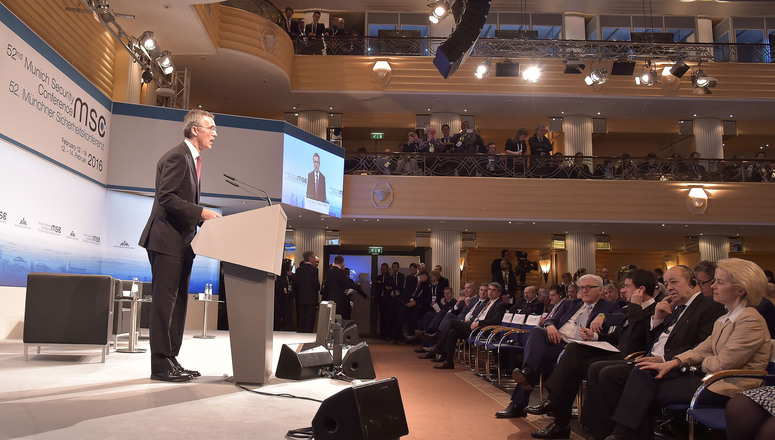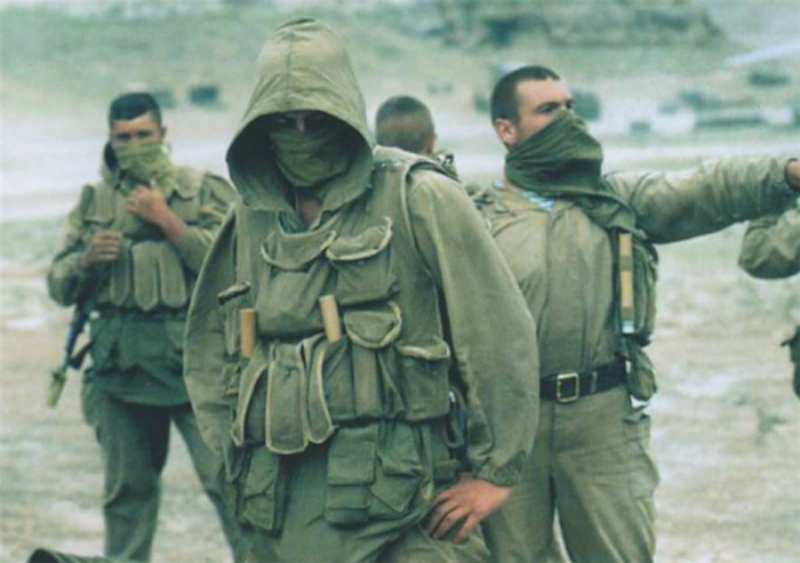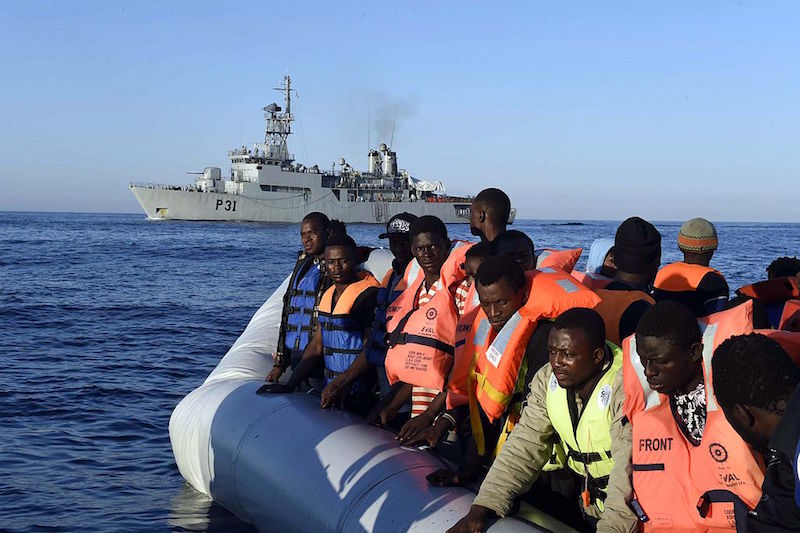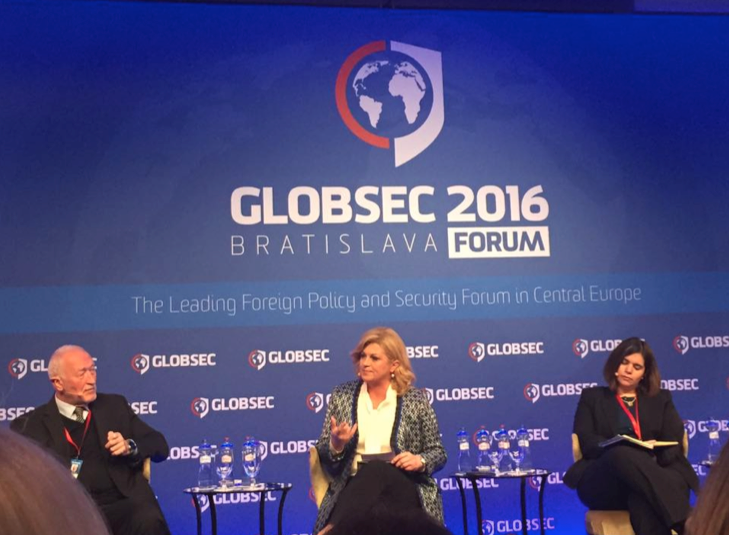The 52nd Munich Security Conference (MSC) took place on February 12-14, 2016, bringing together over 600 notable individuals. Among the attendees were King Abdullah II bin Al Hussein of Jordan, U.S. Secretary of State John Kerry, Russian Foreign Minister Sergei Lavrov, French Prime Minister Manuel Vallis and Foreign Minister Laurent Fabius, the President of the European Parliament Martin Schulz, Iranian Foreign Minister Mohammad Javad Zarif, and Saudi Foreign Minister Adel Al-Jubeir. Whereas last year’s conference focused primarily on the crisis in Ukraine, this year’s focus was the war in Syria, the refugee crisis, and Daesh. Ukraine, however, also remained central to the discussion.
At the Conference, Russian Prime Minister Dmitry Medvedev spoke first, noting to all that “we have slid, in essence, into times of a new Cold War.” He expressed that Russia’s “biggest concern” was the lack of adherence to the ceasefire in southeastern Ukraine. He also criticized NATO’s policy regarding Russia for being “unfriendly and opaque.” Medvedev’s speech also stressed the importance of international cooperation, especially on matters such as counterterrorism or stabilizing the Middle East, asking “do we really need a third global shake-up to realize the importance of cooperation rather than confrontation?” One suggestion put forth by Medvedev to promote dialogue was the idea of a Russia-EU Committee on Foreign Policy and Security. Medvedev also praised the work of the International Syria Support Group for their work in finding practical measures aimed at implementing UN Security Council Resolution 2254 and endorsing a roadmap for peace in Syria.
Taking the stage shortly after Medvedev, NATO Secretary General Jens Stoltenberg’s speech praised the decisions taken by NATO defence ministers to address recent threats emanating from the Mediterranean region. Two important decisions made recently were the deployment of a Standing Maritime Group to the Aegean Sea to assist in the refugee crisis and the decision to bolster Intelligence, Surveillance, and Reconnaissance (ISR) at the Turkish-Syrian border. Regarding challenges from the east, Stoltenberg emphasized that “NATO does not seek confrontation. We do not want a new Cold War.” Stoltenberg stressed that NATO’s missile defence system is “neither designed nor directed against Russia. It does not – and cannot – undermine Russian strategic deterrence.” Stoltenberg also commented on a meeting with Russian Foreign Minister Lavrov that had happened to discuss the possibility of reconvening the NATO-Russia Council.
Disagreeing with earlier comments by Medvedev, NATO Supreme Allied Commander General Philip Breedlove stressed the defensive nature of the NATO alliance. Breedlove lamented Russia’s attempt to rewrite the rules in their use of force to change internationally recognized borders.
In closing, there is still a standstill on the Ukraine crisis, with both representatives from NATO and Russia affirming the importance of adhering to the Minsk Agreements. However, areas that remain open for cooperation include important issues such as counter-terrorism and border control. Medvedev rightfully believes that an “‘anti-terrorist formula’ will not be effective without Russia.” In the wake of the North Ossetia hostage crisis in 2004, Russia and NATO pledged to strengthen practical joint-measures to fight terrorism. Because NATO-Russia relations remain tense, now may not be the time for practical cooperation. Despite a lack of consensus on practical cooperation, however, both Stoltenberg and Medvedev agree that dialogue-enhancing measures between NATO and Russia will always be welcome.
Cover image from the North Atlantic Treaty Organization website.




